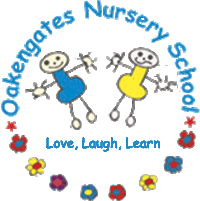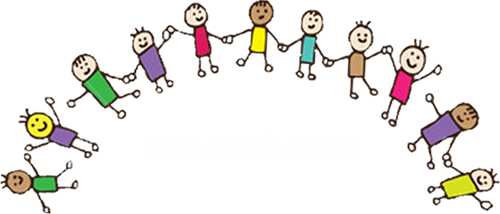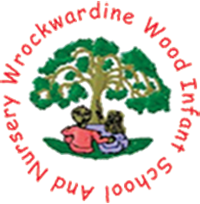Mental Health & Emotional Wellbeing
We are committed to understanding each child so they are valued and understood as an individual; academically, socially, emotionally and as a spiritual being. We strive to make a caring community so our children become sensitive to the needs of others; a community in which all members have a sense of fairness and justice and the contribution of each member is valued. The mental health and emotional well being of our school community is important to us.
Our federation is part of the Future in Mind project so our 'champion' attends regularly training. As a result of this professional development the staff have a wealth of knowledge and skills to support children's and adults Emotional Health and Well Being.
Did you know?
Physical activity can have an immediate and long-term impact on cognitive skills, attitudes, behaviour and concentration - all of which are important factors in academic achievement. Therefore, we encourage parents to support our Healthy Movers home/school programme. Children have the opportunity to take home a back pack with games and activities. Through Healthy Movers children develop a good level of physical literacy helps them to be school ready. The programme also gives children the foundations and confidence they need for lifelong participation in physical activity.
Emotional Wellbeing
Wellbeing is a term we hear a lot about for adults and young people, but we don’t hear so much about it for young children. We know that the rates of teenage mental health problems are rising alarmingly, and we are aware that children and young people are feeling increasingly stressed and distressed.
One critical aspect of a child having good wellbeing is by them knowing that they are loved – that they are loved for the unique and precious individuals they are.
We need to help children understand their feelings and emotions, by using emotion language and giving them an emotional vocabulary we are enabling them to understand their feelings and also other peoples.
If we are going to help children to have a good wellbeing we need to pay attention to our own wellbeing. We need to take care of ourselves; we need to ensure we are eating well, exercising, having rest and doing things which make us happy.
Levels of wellbeing can vary across our life course. Please click here to read why the wellbeing of an adult matters too
For further information please click here to read the Department of Health’s Well Being: Why It Matters To Health Policy
If you feel you need further support to help with your child's emotional wellbeing or your own wellbeing please see the services you can access below.
BEAM Telford you don’t need to be referred or have an appointment. For more information please view the BEAM Leaflet
Talking to your child about coronovirus
For further information please visit:
https://livewell.telford.gov.uk/
https://www.childrenssociety.org.uk/beam/shropshire
School Nurse and Health Visitors
School nursing and health visitor teams ensure that children, young people and their families health needs are assessed and supported, and where additional health needs are identified, they receive an early response, including appropriate referral to specialist services and signposting to other agencies as necessary. Please click on the link for more information.
https://www.shropscommunityhealth.nhs.uk/school-nurses-telford
https://www.shropscommunityhealth.nhs.uk/health-visiting
How do we support children in school?
Here are some of the practical strategies we use to support children’s emotional wellbeing:
- Children to spend quality time being outside.
- Giving children the chance to explore with all their senses.
- Help children to find times to rest, to experience moments of stillness. This can be achieved through use of yoga and mindfulness
- Creativity is an essential part of wellbeing. Children need the space to be creative and for adults to be creative with them.
- Children have a passion for learning and discovering, they need adults around them who want to learn and explore with them. As adults, we show interest and delight with children and learn alongside them
We also have a strong Personal, Social, Emotional and Health programme called Jigsaw. The table below shows some of the topics that we explore with the children.
|
Term |
Puzzle name |
Content |
|
Autumn 1 |
Being Me in My World |
I understand what it feels like to belong. I know that we are similar and different. I understand some of my feelings and can think about how others feel. I know how to be kind to others. |
|
Autumn 2 |
Celebrating Difference |
I know I am special and unique. I know all families are different. |
|
Spring 1 |
Dreams and Goals |
I know what challenge means. I can set a goal and keep trying to achieve it. I can think about jobs I may like to do when I'm older. |
|
Spring 2 |
Healthy Me |
Learning about my body and how to stay healthy. I know how to keep myself safe from strangers. |
|
Summer 1 |
Relationships |
I know how to be a good friend. I know about different kinds of relationships. |
|
Summer 2 |
Changing Me |
I know that I grow and change. I can talk about how I feel when I move from Nursery to school. |
Yoga
Mini Me Yoga contains gentle nurturing exercises which help children strengthen their bodies and encourages them to know that they can be happy and successful in their learning. It develops a positive mental attitude and has been proven to significantly reduce stress, increase children’s capacity to learn, be gentle to one another, respect nature and grow strong mentally and physically.
For more information, you can visit https://minimeyoga.com/
Healthy Eating
The food a child eats in their early years can influence their dietary habits later in life, so it’s important to instill good habits and a healthy relationship with food from an early age. Eating a well-balanced diet can improve mood, provide more energy and help you think more clearly. The food groups that make up this balanced diet are protein foods like fish, meat and eggs, starchy foods supplying carbohydrates, fruits and vegetables and milk and dairy foods. At school children have opportunities to learn about healthy eating through the Eatwell project. They have access to fresh fruit each day and milk twice a week. Every child is entitled to a free healthy meal when they start primary school.
Hygiene
Good personal hygiene habits help children present an attractive appearance to the world, which in turn influences how they are perceived and treated by others. Good hygiene habits are encouraged daily at school and children learn about what they can do at home to ensure their hygiene habits are good.
Sleep
Sleep is as important to our health as eating, drinking and breathing. It allows our bodies to repair themselves and our brains to consolidate our memories and process information. Poor sleep is linked to physical problems such as a weakened immune system and mental health problems such as anxiety. Our school SENDco has received training as 'a champion for sleep' and can offer advice and support.
Dental care
A regular teeth-cleaning routine is essential for good dental health.Children should brush at least twice daily for about 2 minutes with fluoride toothpaste. Good oral and dental hygiene can help prevent bad breath, tooth decay and gum disease. Children should visit a dentist as soon as their first teeth appear. Children are able to meet health professionals as part of our curriculum offer so they learn about people who help us in our community.


